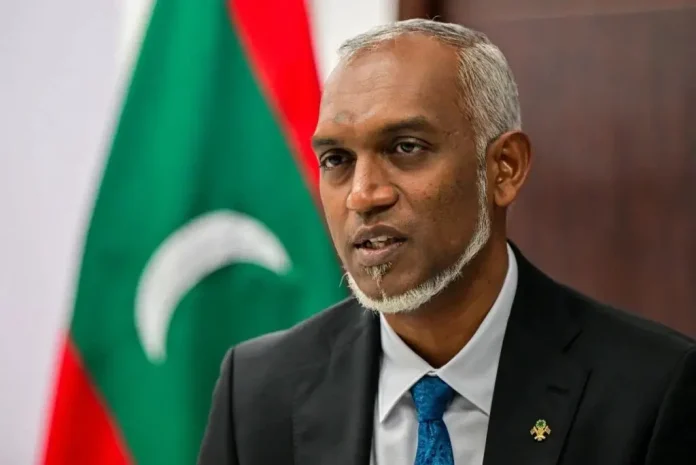The Maldives has demanded that India withdraw troops from its territory by March 15, an official said Sunday, a move that could further strain relations between the South Asian neighbours.
There are around 75 Indian military personnel in the Maldives. They were reportedly deployed to the country in 2020 to maintain and operate emergency evacuation aircraft. Abdulla Nazim Ibrahim, public policy secretary at the President’s Office, said on Sunday after talks in Male between officials from both countries:
Indian military personnel cannot stay in the Maldives. This is the policy of President Dr. Mohamed Muizzu and that of this administration.
New Delhi has not made any comment on the matter. A statement from the Indian foreign ministry said the two sides “held discussions to find a mutually acceptable solution that would allow the continued operation of Indian air platforms providing humanitarian and medical services to the people of the Maldives”.
Male has historically been the biggest beneficiary of India’s “Neighbourhood First” policy and received significant public and humanitarian aid from New Delhi. In 2020, India allocated $500 million for a project to connect Male’ to three nearby islands. It also provided $250 million in financial assistance to the Maldives during the Covid pandemic.
But relations soured sharply after Mohamed Muizzu who won an election in November that many believe was won on anti-India rhetoric. He promised to remove “foreign military boots” from Maldivian soil if he came to power, and many supporters of the ruling People’s National Congress rallied under slogans of “India out”.
Relations between the Maldives and China improved under Mr Muizzu’s mentor Abdulla Yameen, who was president from 2013 to 2018. China and the Maldives upgraded their relationship during Muizzu’s first state visit to Beijing last week by agreeing to a “comprehensive strategic cooperative partnership” that sets the stage for the Asian giant to up its investments in the Maldives.
The Maldives owes China $1.37 billion, equivalent to around 20% of its public debt, according to World Bank data.
